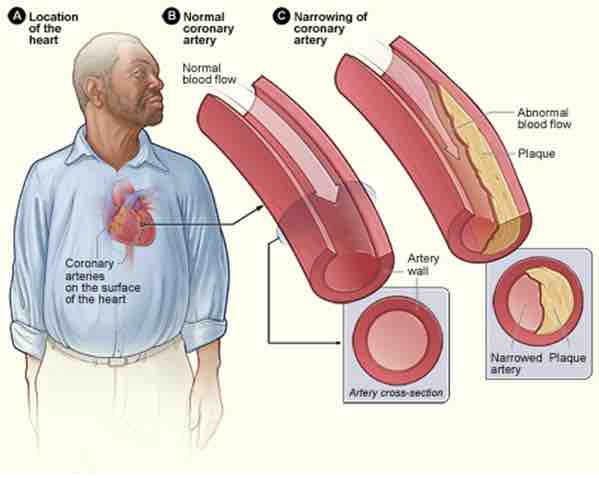Cardiovascular disease has a number of behavioral risk factors, some of which are related to chronic stress. Studies on people who died of a sudden heart attack in the 1970s indicated that these people had experienced more stressful life events in the six months preceding the attack than did those who survived. Medical researchers are not sure exactly how stress increases the risk of heart disease. Stress itself, and the physiological responses the body has to it, might be a risk factor. However, it could be that high levels of stress make other risk factors (such as high cholesterol or high blood pressure) worse. Many researchers argue that the relationship between stress and cardiovascular disease is a combination of these factors.
Stress and Cardiovascular Disease
There has been a lot of research in this field over the last two decades, and the results obtained show clearly that excessive stress can lead to the following:
- increase in heart rate;
- increase in blood pressure;
- increased concentration of fat in blood;
- increased blood sugar;
- increased cholesterol in blood;
- increased blood clotting;
- increased deposition of fat and cholesterol in the arteries;
- spasm of coronary and other arteries.
This shows us that stress in itself is an influential risk factor—that even in the absence of other risk factors, it can become responsible for coronary heart disease. If stress itself is a risk factor for heart disease, it could be because chronic stress exposes your body to unhealthy, persistently elevated levels of stress hormones like adrenaline and cortisol. Stress not only increases a person's chances of participating in unhealthy activities (unhealthy eating habits, not exercising due to work load, drinking alcohol, and smoking), it also triggers the physiological responses that predispose a person to heart disease. Chronic stress increases both blood pressure and the risk of atherosclerosis, both of which increase the risk of heart disease. Stress may lead to obesity and diabetes, which are both linked to cardiovascular disease.

Atherosclerosis
Stress can lead to blockages of the arteries, known as atherosclerosis.
Stress and Personality Types
In the 1950, researchers identified two disparate personality types that may impact someone's chances of developing coronary heart disease. They named these personality types Type A, which tends to increase risk of heart disease, and Type B, which tends to decrease risk of heart disease.
Type A individuals tend to be ambitious, achievement oriented, rigidly organized, highly status-conscious, impatient, highly time-focused, and often take on more than they can handle. People with Type A personalities are often high-achieving workaholics who multi-task, push themselves with deadlines, and become frustrated by delays and ambivalence. Because their lives are often highly stressful, people with Type A personalities tend to be at a higher risk for heart disease.
Stress Management and Cardiovascular Health
Many people are beginning to focus on changing unhealthy habits in order to achieve better lives. Diets are being modified, and time is being made for exercise, but countless individuals are neglecting one key aspect of their life: their mental health. Eating a diet low in salt and fat can help lower blood pressure and heart rate, two contributing factors to heart disease. Daily exercise can also keep your heart rate, blood pressure, and cholesterol levels low, lowering your risk for heart disease. However, managing one's stress levels and finding healthy outlets for stress is a crucial component for preventing cardiovascular disease. Things like yoga, meditation, reducing one's workload, and taking personal time to relax can reduce stress levels, aid in stress management, and reduce the risk of heart disease.